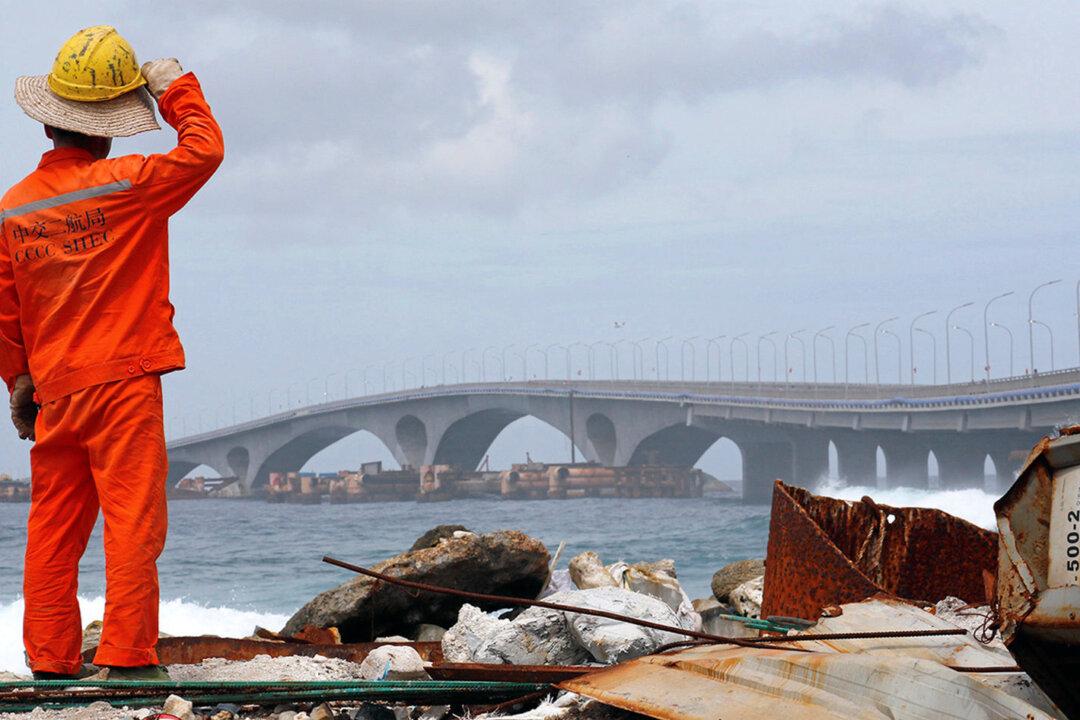NEW DELHI—A victory for President Abdulla Yameen in a Sept. 16 election in the Maldives could ramp up pressure on its finances, as the government stays the course on a Chinese-backed infrastructure boom that is in danger of swamping the economy.
The Maldives under Yameen has grown closer to China—to the alarm of traditional ally India—with China funding roads, bridges, and an extension to the international airport as part of its One Belt, One Road (OBOR) initiative of infrastructure projects in almost 70 countries from Mongolia to Montenegro.





